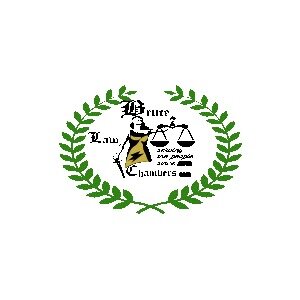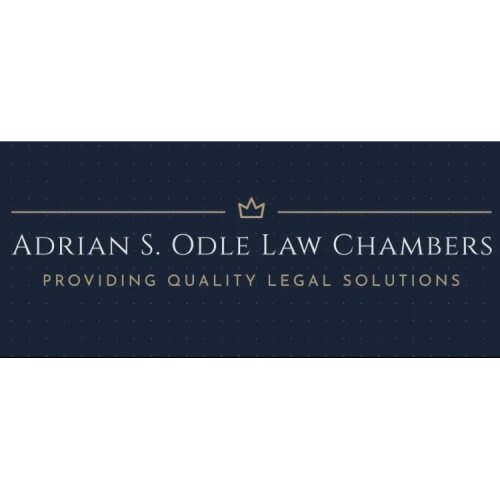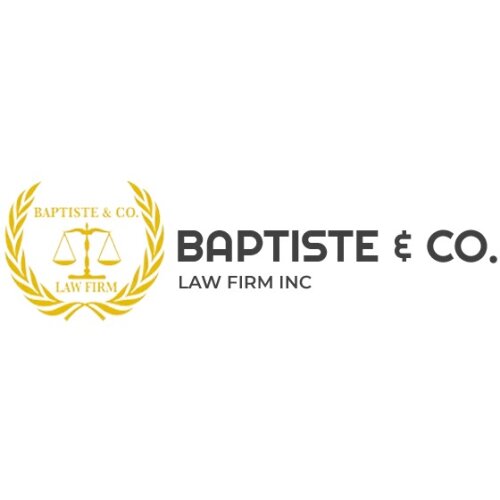Best Energy Regulatory Law Lawyers in Kingstown
Share your needs with us, get contacted by law firms.
Free. Takes 2 min.
List of the best lawyers in Kingstown, Saint Vincent and the Grenadines
About Energy Regulatory Law in Kingstown, Saint Vincent and the Grenadines
Energy Regulatory Law in Kingstown, Saint Vincent and the Grenadines covers the legal framework governing the generation, transmission, distribution, and use of energy resources within the country. It includes the rules and standards that regulate public and private entities operating in the electricity and renewable energy sectors, the licensing and operation of energy providers, as well as consumer protection and environmental considerations related to energy production and consumption. As the nation works toward energy security, diversification, and sustainable development, regulatory oversight ensures that both new and existing energy projects comply with national and international standards.
Why You May Need a Lawyer
Legal support in Energy Regulatory Law is crucial for several reasons. You may need a lawyer if you are:
- Starting an energy-related business and need guidance on licensing and compliance with regulatory frameworks.
- Negotiating energy supply contracts or power purchase agreements.
- Experiencing a dispute with an energy supplier or regulatory body.
- Imported or planning to use renewable energy technology and need to understand applicable incentives, duties, or laws.
- Affected by land acquisition for energy infrastructure projects.
- Seeking to resolve issues of environmental compliance or obtain necessary permits for energy projects.
- Lodging complaints against energy service providers for service delivery or billing disputes.
- Advising on cross-border energy transactions or the import and export of energy resources.
- Needing representation before the Public Utilities Regulatory Commission or other regulatory agencies.
Local Laws Overview
Energy in Saint Vincent and the Grenadines is governed by several core pieces of legislation, regulations, and policies. The Public Utilities Act provides for the licensing and regulation of public utilities, including electricity provision. The Saint Vincent Electricity Services Limited (VINLEC) operates as the state-owned power provider under specific legislative mandates. The government has adopted policies to encourage the development of renewable energy, such as geothermal, wind, and solar, reflected in national energy policies and incentives for investors.
The Public Utilities Regulatory Commission (PURC) plays a key role as the independent regulatory authority overseeing energy service providers, protecting the interest of consumers, and ensuring fair competition. Environmental laws and planning regulations also intersect with energy law, particularly for new infrastructure projects and sustainable energy developments. This legal landscape is dynamic, especially as the country invests in greater energy diversification and compliance with regional commitments such as those made through the Organisation of Eastern Caribbean States (OECS) and international agreements.
Frequently Asked Questions
What is the main regulatory body for energy services in Saint Vincent and the Grenadines?
The Public Utilities Regulatory Commission (PURC) is the main body responsible for regulating the energy sector, ensuring compliance with local laws, protecting consumer interests, and overseeing the operations of public utilities.
Do I need a license to generate renewable energy for my own use?
Small-scale renewable energy systems for personal use may not always require a license, but connection to the national grid or commercial generation typically does. It is important to consult the relevant authorities for specific requirements.
What are the main laws governing the supply of electricity?
The Public Utilities Act and related regulations, as well as the statutory framework for Saint Vincent Electricity Services Limited (VINLEC), form the primary basis of law for electricity supply in the country.
How can I resolve a billing dispute with my electricity provider?
Consumers should first attempt to resolve disputes directly with the service provider. If unresolved, they can file a complaint with the Public Utilities Regulatory Commission (PURC).
Are there incentives for investing in renewable energy?
Government policies encourage renewable energy investments through various incentives, including duty concessions on equipment and support for commercial projects. Specific programs may change, so legal advice is recommended.
Can foreign companies invest in the local energy sector?
Yes, but foreign investments must comply with local licensing requirements, environmental laws, and government-approved frameworks for energy sector participation.
What environmental regulations affect energy projects?
Energy projects must comply with national environmental laws and often require environmental impact assessments before approval, particularly for large-scale or sensitive developments.
What should I do if land is being acquired for an energy project?
Land acquisition for public utility or national interest projects is governed by law, and affected parties have rights to due process and compensation. Legal advice is crucial in such cases.
How are tariffs for electricity determined?
Electricity rates are regulated by the PURC, which evaluates provider requests and public feedback to establish fair and sustainable tariffs for consumers.
Who has authority over rural or off-grid energy solutions?
While national legislation covers most energy production and distribution, there may be special provisions or exemptions for off-grid or rural initiatives, particularly where community or governmental projects are involved.
Additional Resources
People seeking more information or assistance can contact or consult the following:
- Public Utilities Regulatory Commission (PURC) - oversees energy regulation and consumer complaints.
- Ministry of Finance, Economic Planning and Information Technology - implements national energy policies and manages government incentives.
- Saint Vincent Electricity Services Limited (VINLEC) - provides electricity and information on grid connection or service issues.
- Ministry of National Security, Air and Sea Port Development - involved in environmental assessments for energy projects.
- The Organisation of Eastern Caribbean States (OECS) Energy Unit - offers regional policy guidance.
- Local law firms with expertise in energy and environmental law for consultation and representation.
Next Steps
If you need legal assistance in Energy Regulatory Law in Kingstown, Saint Vincent and the Grenadines, begin by clearly identifying your issue or objective. Gather all documents related to your situation, including permits, contracts, communications, and notices. Consult the relevant governmental authority or regulatory body to understand preliminary requirements or to file complaints when necessary.
For in-depth legal advice or representation, contact a local attorney or law firm specializing in energy, regulatory, or environmental law. Ask about their experience with similar cases and clarify fees and processes. Timely consultation can help you navigate regulatory complexities, avoid costly mistakes, and ensure your rights and interests are protected.
Lawzana helps you find the best lawyers and law firms in Kingstown through a curated and pre-screened list of qualified legal professionals. Our platform offers rankings and detailed profiles of attorneys and law firms, allowing you to compare based on practice areas, including Energy Regulatory Law, experience, and client feedback.
Each profile includes a description of the firm's areas of practice, client reviews, team members and partners, year of establishment, spoken languages, office locations, contact information, social media presence, and any published articles or resources. Most firms on our platform speak English and are experienced in both local and international legal matters.
Get a quote from top-rated law firms in Kingstown, Saint Vincent and the Grenadines — quickly, securely, and without unnecessary hassle.
Disclaimer:
The information provided on this page is for general informational purposes only and does not constitute legal advice. While we strive to ensure the accuracy and relevance of the content, legal information may change over time, and interpretations of the law can vary. You should always consult with a qualified legal professional for advice specific to your situation.
We disclaim all liability for actions taken or not taken based on the content of this page. If you believe any information is incorrect or outdated, please contact us, and we will review and update it where appropriate.











